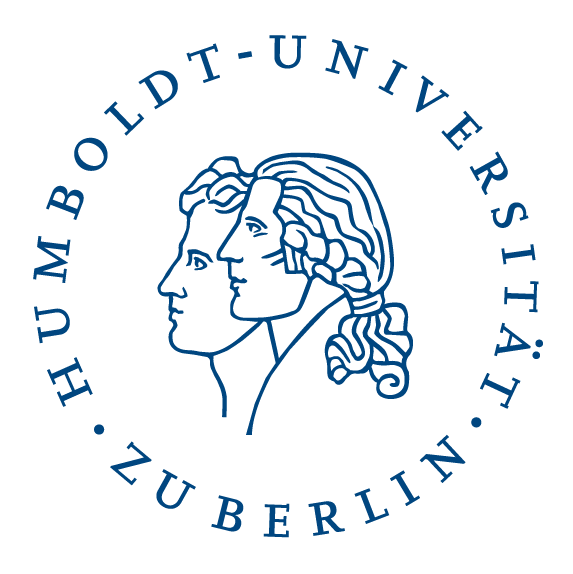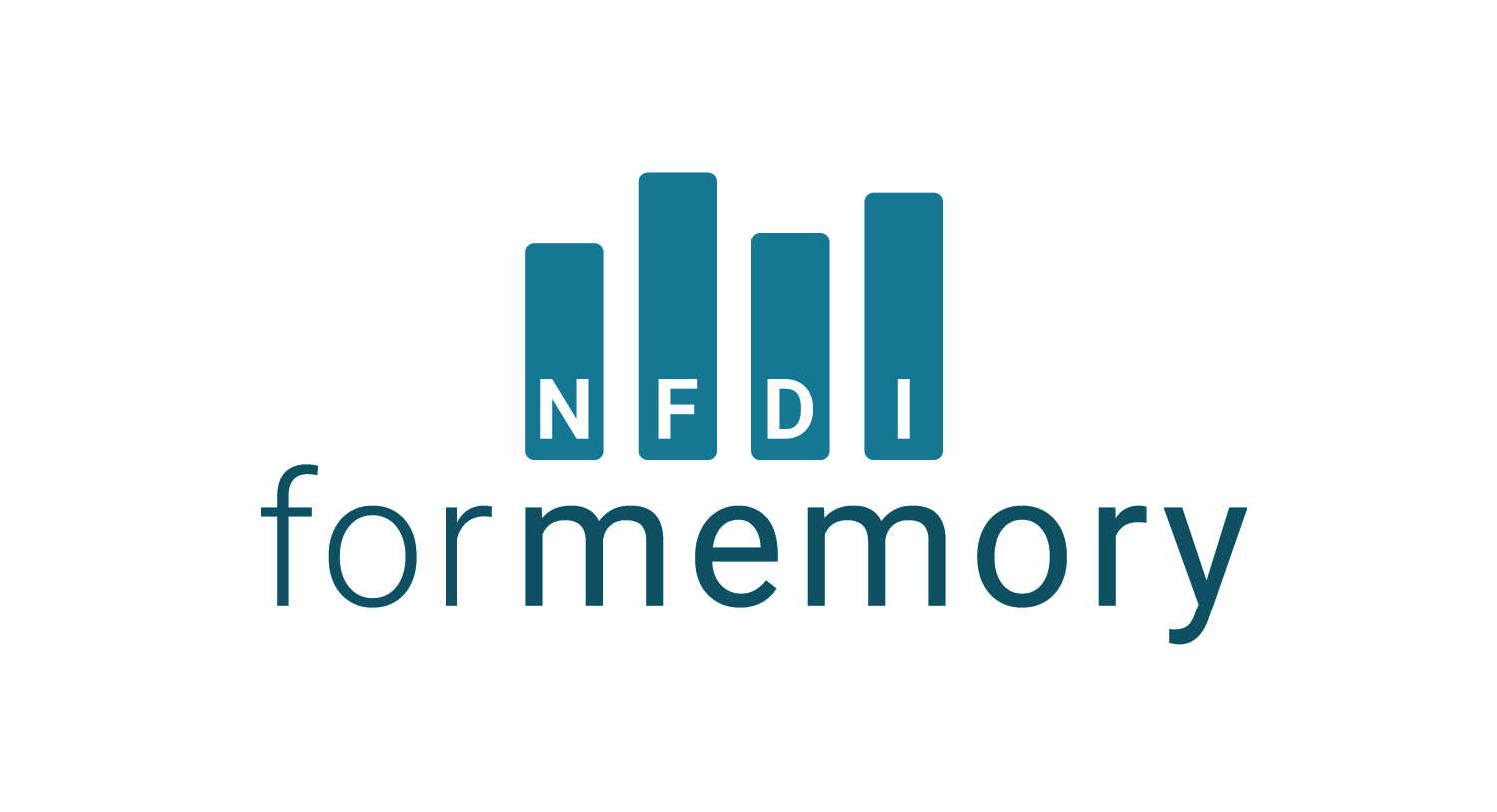



Till Grallert
Humboldt-Universität zu Berlin, Institut für Geschichtswissenschaften
Methods Innovation Lab, NFDI4Memory
Datafizierung unterstreicht den fundamentalen epistemischen und konzeptionellen Wandel von einer Welt, in der Daten ein eng definierter Teil der Ergebnisse von Forschungsprozessen waren, hin zu einem neuen Status Quo, in dem alle Forschungsprozesse immer bereits durch Informations- und Kommunikationstechnologien (ICT) computationell mediiert sind.
wir leben in datafizierten Gesellschaften
“digital” hat seine Bedeutung verloren
We think of the ‘digital’ as a previous historic movement when computation as digitality was understood in opposition to the analogue, rather than complementary […]
Berry und Fagerjord (Digital Humanities 2017), 2
Algorithmen sind Teil des sozialen Gewebes
Today, algorithms are such an intrinsic and fundamental part of how daily life is experienced that some scholars even argue that we live in “algorithmic cultures” […]. This evocative notion points to the increasing difficulty of separating algorithms from the activities that make up culture. It also evinces the complex ways in which human agency and algorithmic actions are intertwined […]
Siles (Living with Algorithms 2023), 1
It is our position that the “digital” cannot be understood as a separate domain of culture. If we actually examine the digital […] we see that today digital information processing is present in every aspect of our lives.
(Centre for Postdigital Cultures „About Us“ 2018)
Jegliche digitale Informationen sind Daten …
Data are forms of information, a larger concept that is even more difficult to define. Epistemological and ontological problems abound, resulting in many books devoted to explicating information and knowledge
Borgman (Big Data, Little Data, No Data 2015), 18
[Datafication/modeling] is the work of abstracting discrete values from a phenomenon or artifact. These values may be expressed in numbers or texts and are necessarily a reduction of complex materials into a form for computation.
Drucker (DH Coursebook 2021), 3
Data need to be imagined as data to exist and function as such, and the imagination of data entails an interpretive base.
Gitelman („Introduction“ 2013), 3
… und alle Daten sind modelliert
"حبيبتي، انت جميلة، كساعة اضافية من الكهرباء"
— aya mansour (@aya_mansour_11_) July 31, 2015
هذا غزل أحد المتظاهرين في ساحة التحرير اليوم.
رائعة حقيقة! pic.twitter.com/KI8sAkY719
مريم .. أنتِ جميلة كساعة إضافية من الكهرباء ..
— Jawdat Alsaleh (@JawdatAlsaleh) June 27, 2017
كتبها عاشق في فلسطين - غزة pic.twitter.com/W3QvpmaE3O
Für einen aufgeklärten Umgang mit Datafizierung brauchen wir einen fundamentalen Kulturwandel
Kennen Sie die?
Es herrscht in der Breite ein Mangel an
eine Fachkultur, bei der (Forschungs-)daten und datengetriebener Methoden ein integraler Bestandteil sind, die Arbeit mit und an Daten also nicht mehr als ein netter Appendix zum “eigentlichen” Forschungsprozess verstanden wird.
alltägliche Praktiken und Verantwortlichkeiten (auch rechtlich und ethisch) im Umgang mit Forschungsdaten, bei deren Erzeugung, Bereitstellung und Nutzung mit Hilfe von computationellen Methoden und Werkzeugen.
Verständnis der theoretischen und epistemologischen Grundlagen und Implikationen der Datafizierung und Diskussion über deren Folgen
Orientierung, Guidelines und Unterstützung
Do artefacts have politics?
(Winner „Do Artifacts Have Politics?“ 1980)
Do politics have artefacts?
(Dunbar-Hester Low Power to the People 2014)
To use […] tools well, we must, in some real sense, understand them better than the tool makers. […] The best kind of tools are therefore the ones that we make ourselves.
(Tenen „Blunt Instrumentalism“ 2016, 85)
Without access to the code, whether because it is proprietary or generated on the fly, as in the case of some machine-learning algorithms, analysts can only comment on the apparent operations of the code based on its effects. The operations of the code are left in the hands of those who can access it, usually those who have made or maintain it, and those who can read it.
(Marino Critical Code Studies 2020, 4)
Kreativität von Design, Herstellung und Erfahrung von (digitalen) Objekten als From von Wissenschaft
DFG-Projekt “Future e-Research Support in the Humanities II” an der UB der Humboldt-Universität zum Aufbau eines prototypischen Scholarly Makerspace zur Förderung digitaler und computationaler Werkzeugkompetenz (tool literacy) in den Geistes- und Kulturwissenschaften (2022–25)
Der Grundgedanke von Makerspaces ist das Teilen von Räumen, Ressourcen und Wissen innerhalb einer Gemeinschaft, welche Einzelpersonen sonst nicht zur Verfügung stünden
(Späth, Seidl, und Heinzel „Verbreitung und Ausgestaltung von Makerspaces an Universitäten in Deutschland“ 2019, 41)
I also remind DH is an imposter syndrome house of mirrors. You look around and see experts in GIS, TEI, dataviz, etc.; it’s hard to remember that people tend to be good at one of those things when the collective appears to be good at all of them. We all suck at most of DH.
(Weingart „Tweet“ 2021)
Unfortunately, I’m not particularly handy. On every new project, the tools require blood.
(Graham „Toot“ 2023)
Generous Thinking [begins] by proposing that rooting the humanities in generosity, and in particular in the practices of thinking with rather than reflexively against both the people and the materials with which we work, might invite more productive relationships and conversations not just among scholars but between scholars and the surrounding community.
(Fitzpatrick „Generous Thinking“ 2016)

to coordinate and develop […] ‘contact languages’ [..] is the necessary underpinning of a stable, respectful and hybrid form of interdisciplinary collaboration. Done correctly they can create something new: Galison’s ‘full-fledged creoles’ supporting ‘activities as complex as poetry and metalinguistic reflection’. They can create new disciplinary spaces and practices in their own right.
(Ahnert u. a. Collaborative Historical Research in the Age of Big Data 2023)



Anteile an jeglichem Output transparent klassifizieren
Unsere Stakeholder und ihre Bedürfnisse kennen
Das Haus ist gebaut aus den Steinen, die vorhanden waren
(Brecht „Schlechte Zeiten“ 1967)
minimal computing connotes digital humanities work undertaken in the context of some set of constraints. This could include lack of access to hardware or software, network capacity, technical education, or even a reliable power grid
(Risam und Gil „Introduction“ 2022, Abschn. 3)
this implies learning how to produce, disseminate, and preserve digital scholarship ourselves, without the help we can’t get, even as we fight to build the infrastructures we need at the intersection of, with, and beyond institutional libraries and schools.
(Gil und Ortega „Global Outlooks in Digital Humanities“ 2016, 29)
Kollaboratives Projekt von Faculty, Bibliothekar_innen, Entwickler_innen an der University of Victoria, Kanada
it all started with a manifesto
The digital is material. As digital humanists, every project we create, every software application we use, every piece of hardware we purchase impacts our environment. […] we aim to surface the ecological impacts of our work while learning with and from our DH community about ways to reduce harm to the environment and to the people most impacted by environmental injustices. As humanities researchers, it is also our role to probe the values, the power structures, and the future imaginaries that underpin sustainable solutions. Given, especially, the immense and monopolistic power wielded by the global tech sector, and the critiques of this power that are part of DH, our use of their resources should be informed by the ways corporate economic, cultural, and scientific power perpetuates and exacerbates the crisis.
(Baillot u. a. „Digital Humanities and the Climate Crisis“ 2021)
directories require ongoing upkeep, and it is unrealistic for an individual – particularly in an alternative academic career track – to do that work indefinitely.
Dombrowski („The Directory Paradox“ 2021)
Wir müssen die Frage “was brauchen wir” mit “was haben wir” beantworten können
Sustainable und FAI …
… R